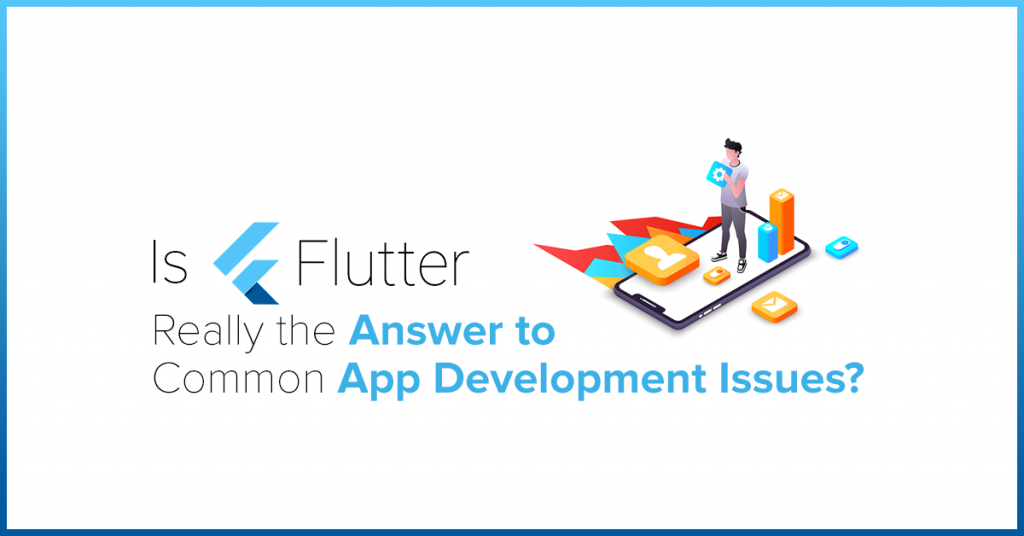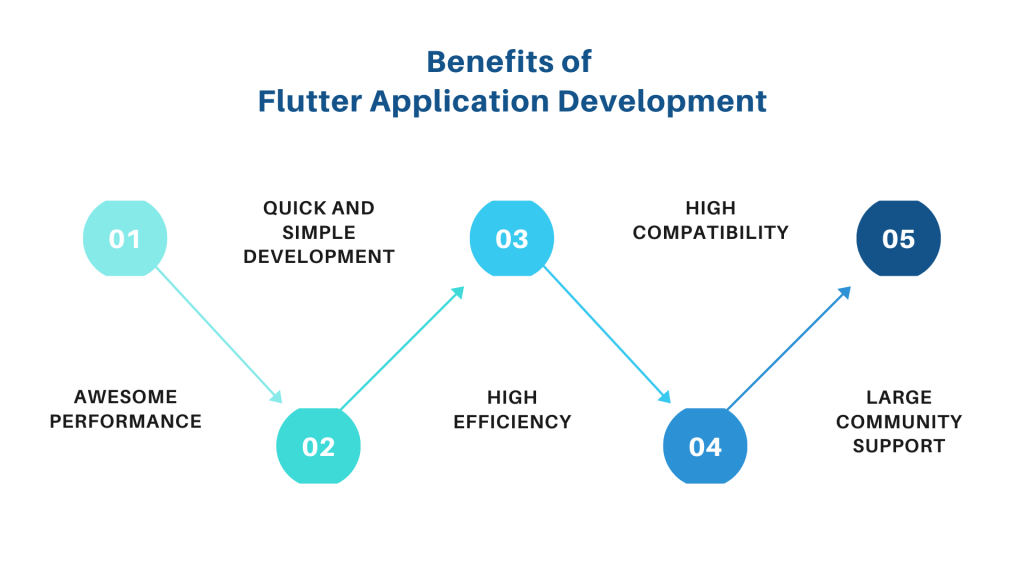Is Flutter Really the Answer to Common App Development Issues?

A common problem faced by application developers is: Designing multiple code bases for different operating systems and at the same time, adjusting the screen size, aspect ratio as per countless computing devices.
It creates significant pressure on the professionals as they need to design new codes not only for multiple operating systems but also for several devices, even for the smallest feature update.
Is there a solution? Yes, and It is called Flutter. This free open-source UI toolkit was announced by Google in May 2017, and later it went through six previews before the launch of Flutter 1.0 in December 2018.
It permits building native applications for a range of devices (mobile, web, and desktop) and operating systems (Android, iOS, etc) from a single code base.
Flutter is built around widgets where the UI is designed using a combination of widgets. However, instead of using OEM widgets, Flutter provides own widgets that deliver a native experience to Android (Material Design) and iOS apps (Cupertino).
Each widget lays out an element: structural (like button or menu), layout aspect (like padding), stylistic (like font style, font size, color), etc. Additionally, one also gets the liberty to create custom widgets. The applications on Flutter are built using object-oriented programming language called Dart.
Why should you use Flutter?

-
Awesome Performance:
As Flutter provides own widgets instead of relying on OEM, this results in great performance delivery because of less mediated communication between the platform and the application.
Dart works on native code, which combines with other features and contribute to faster application boosting & minimum performance issues.
-
Quick and Simple Development:
The feature of Hot Reload is the major reason behind immense popularity enjoyed by Flutter application development. It allows the developer to instantly see the changes made in the code on the simulator, emulator, and hardware.
The team of Flutter claims that one can do programming using Flutter even without any previous experience in programming languages. It also has the ability to view changes without application restart which is not only great for adding new features or building UIs but also beneficial for fixing bugs.
-
High Efficiency:
Flutter allows developers to build and design native applications for users of different operating systems like Android and iOS using a single code base. This cross-platform development helps in saving time, money, and other resources that enhance efficiency.
-
High Compatibility:
Widgets on Flutter are a part of the application and not of the platform. This feature helps in reducing the number of compatibility issues to almost nil. As a result, the time spent on application testing gets reduced drastically.
-
Large Community Support:
A benefit of offering open source and free to use application development toolkit is the extensive community support. Extensive documentation by Google and free access to millions of people help in tackling issues, as and when encountered by developers.
Challenges Ahead
Every new technology in the IT industry has to overcome its own set of challenges, the same is with Flutter. Many developers feel reluctant to learn a new programming language. On the other hand, if you plan to hire a team of Dart developers, the problem faced is the lack of resources with the required skills.
However, many industry experts believe that, as compared to other programming languages, Dart is relatively easy to learn and understand, given the developer is serious about gaining knowledge.
Another challenge faced by developers regarding Flutter is its novelty. Some people in the industry are of the opinion that Flutter is perfect for building simple apps and prototyping, not for building complex commercial applications. However, when one looks around, there exist several Flutter success stories of applications in production.
What do you think is the future of Flutter?
We hope our column on Flutter has given you a beginner’s insight into this super cool UI toolkit launched by the developers at Google. We’d love to hear your views on the use of Flutter application development and its future. Share your thoughts with us via the comment section given below.






 Branded Solutions
Branded Solutions






















